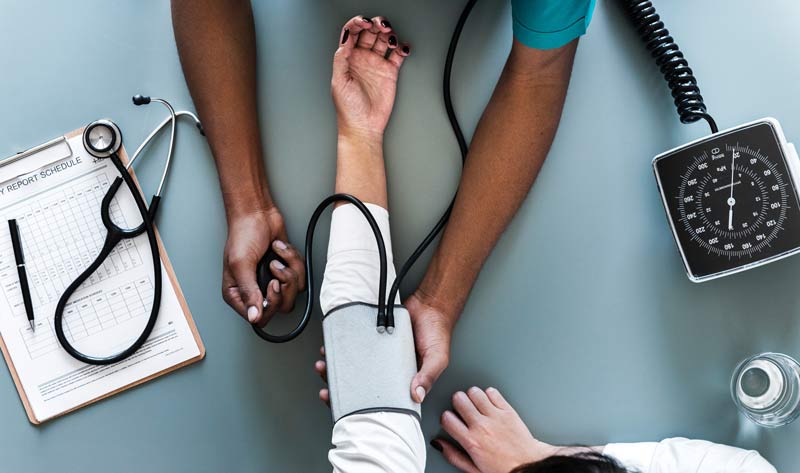Metabolic syndrome is a constellation of cardiovascular risk factors which together are strongly associated with the future development of coronary artery disease, myocardial infarction,
stroke, sudden cardiac death, and diabetes.
What causes metabolic syndrome?
Metabolic syndrome is caused by obesity and inactivity.
Do I have metabolic syndrome?
You have metabolic syndrome if you have any 3 of the following 5 conditions:
- Central obesity: waist circumference greater than or equal to 38-40 inches
- A high fasting blood glucose level, glucose intolerance, or you are being treated with medications to lower
your blood sugar. - High serum triglyceride levels or are being treated with medications to lower triglyceride levels such as Niacin
or Niaspan - Low serum HDL levels
- Hypertension (defined by a blood pressure greater than or equal to 135/85) or being treated for high blood
pressure
Am I at risk for developing metabolic syndrome?
You are at risk if you have any of the following risk factors.
The more risk factors you have, the more risk you have.
- age >/=60y
- race: Hispanic or Asian
- obesity
- diabetes or family h/o DM type 2
- inactivity
- low testosterone
One of the main features of metabolic syndrome is insulin resistance. Your body simply does not use insulin
effectively. Contributors to insulin resistance include low testosterone, central obesity, lack of exercise and genetic
abnormalities.
Insulin resistance is associated with endothelial dysfunction (e.g. erectile dysfunction and micro
albuminuria), inflammation, increased small dense lipoproteins and a prothrombotic milieu.
Low testosterone levels are frequently found in men with metabolic syndrome. Men with metabolic syndrome
and a low testosterone level are at a heightened risk of adverse cardiovascular events and developing diabetes
compared to men with metabolic syndrome with a normal testosterone level.
Testosterone replacement therapy (TRT) in men with metabolic syndrome decreases insulin resistance,
decreases central adiposity and decrease HgA1c in men with associated diabetes. TRT improves libido and erection
quality.
Can I be cured of metabolic syndrome? Exercise and diet can go a long way in reducing the risks associated
with metabolic syndrome; both should be a part of any treatment plan. Exercise and diet will reduce fat mass and
increase muscle mass which in turn decreases insulin resistance, lowers blood pressure and raises HDL (good
cholesterol). TRT in hypogonadal men with metabolic syndrome can improve results associated with diet and
exercise.

